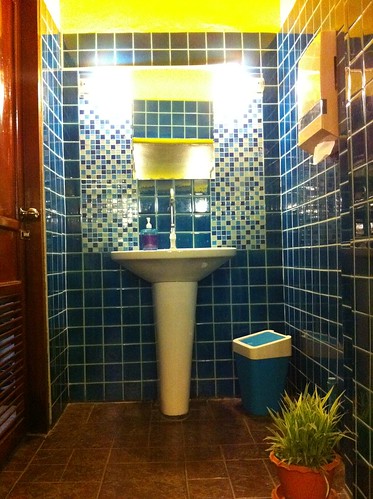
When we came to Laos one year ago, most of the retail shop followed the Asian way: Just do (and sell) what your neighbor does. The main way in retail business is to buy stock for like 10.000 dollar and wait until it is sold. To show how much products you have you try to put everything into you little shop. and yes, put it also outside, it does'nt matter if it get's dirty from all the trucks passing by.
One year later, you see more and more change. The boutiques at the Khouvieng road are the most obvious change. They are nicely designed, with shelfs showing a selection of products. Nothing outside, instead they have glas doors and aircondition inside.
Also, some coffeeshops that opened recently follow a more modern way. Friends de Cafe, Benoni, Baan Tonmali Cake, Joma, YoQueen, IceBean, just to name some of them. Look at restaurants like Xayoh, Nos, Pizza Company, Swensens, i-Beam, Loft, Kongkhao - all of them do not follow the old hole-in-the-wall-concept. Or the new Meshop. Yes, some of them may not successful yet, since the market is still developing. But you can see a pattern.
The picture above shows the toilet at the Friends de cafe. It is actually a good symbol of what means paying attention to every detail. Toilets are usually the last place you modernize.
I am predicting more change soon. Innovation drives competition, and if you are the most innovative, you can stay ahead of the competitors, at least for a while.
Some people complained that Laos doesn't need modern shopping malls or international clinics. Actually the people just vote with their feet: They go frequently to Udon for shopping and health care.
So we still have exciting times here. And it sees that businesses are going on a fast pace and settings standards. This is a good development.

